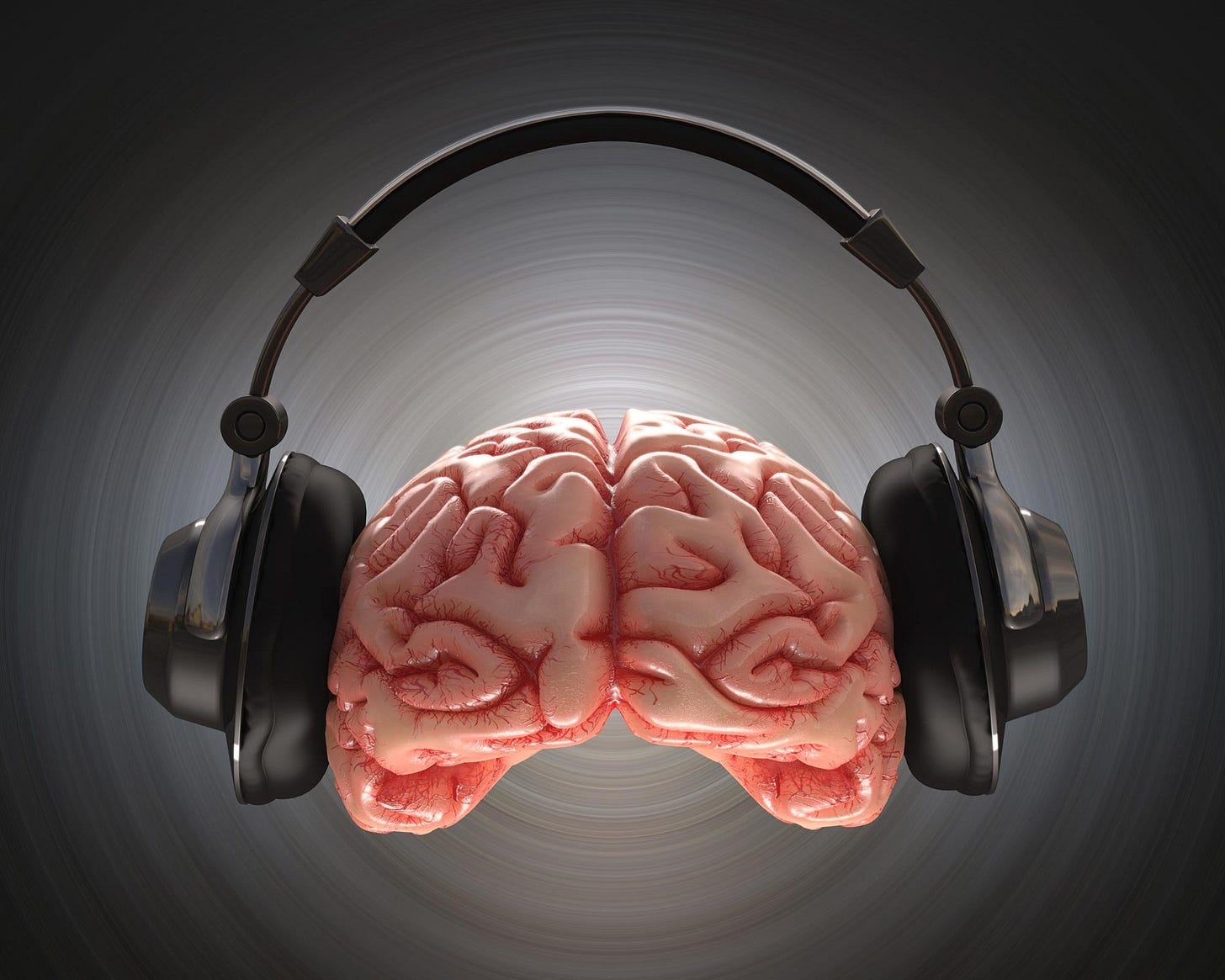Why Do Our Brains Like Music?
Written by Shraddha Tipparaju
You know that feeling when you hear a song for the first time ever and you just know that it's going to be your favorite song for a long time to come. There's just this "something" in the way it itches your brain and now you can't stop listening to it.
Music touches us in a very emotional way different to the ways that other noises affect us but why is that?
In a study done by Valorie Salimpoor, the participants' brains were attached to an fMRI machine, and during the peak of the participants' favorite songs, their brains would almost light up. Our bodies physically react to the songs that we enjoy.
Whenever you hear a song that you like for the first time your brain is constantly analyzing and looking for patterns, even if you don't realize it. Humans have evolved to find patterns in everything as a means of survival.
So, when you hear a new song your brain is attempting to anticipate the way it will sound before it has even happened and this neural activity releases dopamine. Even if you listen to that song again and again your brain is anticipating that same release of dopamine ergo the pleasure that is then associated with that song. But if the song is too different to what you've heard before your brain cannot anticipate any patterns so then there isn't any pleasure being associated with that song.
Dopamine is released when your body is biologically rewarded during things like eating, exercising, socializing, and even doing drugs. When someone says music is like a drug to them, they are technically correct.
Whether you're into bubbly pop music, slow-paced ballads, or heavy metal rock there's a genre that can brighten all of our days. Music lifts our spirits, improves our mood, and is almost therapeutic for us and life wouldn't be the same without it.
References
https://www.ncbi.nlm.nih.gov/pmc/articles/PMC6353111/
https://magazine.hms.harvard.edu/articles/how-music-resonates-brain
https://greatergood.berkeley.edu/article/item/why_we_love_music
Written by Shraddha Tipparaju from MEDILOQUY


